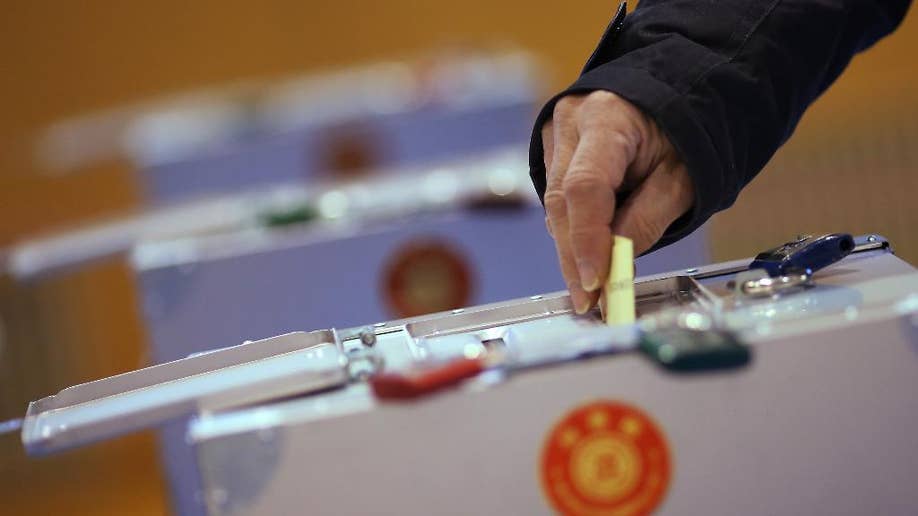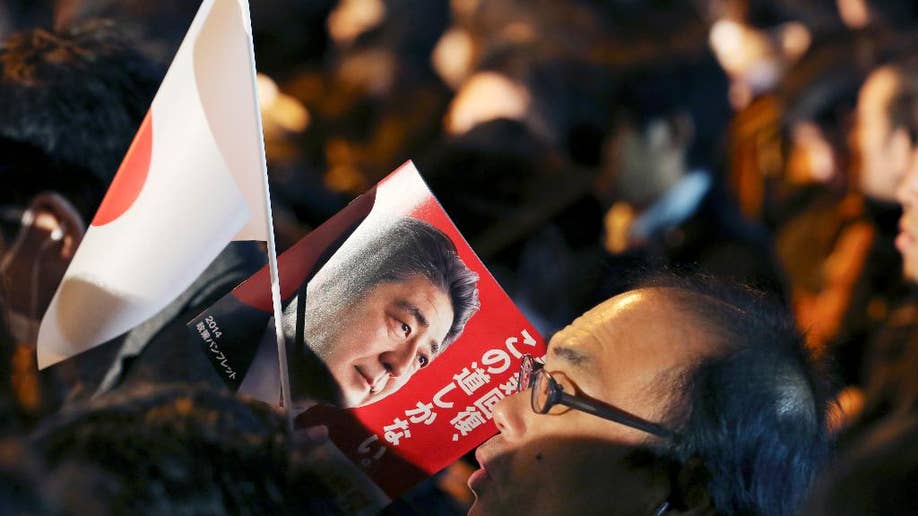News Guide: What to watch for in Japan's parliamentary elections
{{#rendered}} {{/rendered}}A national election in Japan on Sunday is expected to return the ruling party of Prime Minister Shinzo Abe to power in a possible landslide. At stake is the 475-seat lower house, which is the more powerful of Japan's two houses, and has the final say in picking a prime minister and approving most legislation.
___
WHAT TO WATCH FOR
{{#rendered}} {{/rendered}}The margin of victory. Pre-election polls pointed to a solid win for Abe's Liberal Democratic Party, which has governed Japan for most of the post-World War II period. The LDP held 295 seats in the lower house when Abe dissolved it last month, forcing Sunday's snap election. Projections based on polls by Japan's major media say the LDP could win more than 300 out of the 475 seats. Tthe number of seats was cut from 480 earlier.
___
WHY IT MATTERS
{{#rendered}} {{/rendered}}Abe could use a large majority to push through politically difficult initiatives such as opening Japan's agricultural markets and expanding the role of Japan's military. Economic reforms are vital to a sustained recovery from two decades of stagnation, but face stiff opposition from vested interests — so even a landslide won't guarantee change.
A big win would help Abe fend off leadership challenges from within his party. If his popularity ratings remain relatively high, he could remain prime minister for up to four more years, when he would be legally required to call another election.
___
{{#rendered}} {{/rendered}}WHAT ABE WANTS
Abe hopes to stem a slide in his support while his government remains relatively popular and the opposition is in disarray. Consolidating power now may aid in his longer-term, more controversial goals of amending the constitution and restarting nuclear power plants.
___
{{#rendered}} {{/rendered}}IMPLICATIONS OUTSIDE JAPAN
Japan's relations with its huge neighbor and trading partner China have soured since Abe took office in late 2012, as the two countries sparred over conflicting claims to islands in the East China Sea that are controlled by Tokyo. Sunday's vote could further roil ties with China if Abe interprets a strong showing for the Liberal Democrats as a mandate for a tough stance toward Beijing.


